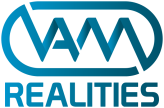
Full project title
Volumetric 3D Teachers in Educational Reality
Project acronym
Vol3DEdu
Coordinator/applicant
Eleni Mangina
Country of coordinator’s
or applicant’s residence
or applicant’s residence
Ireland
Contact person
Eleni Mangina
E-mail address
Programme/fund
Erasmus+
Project duration
01.12.2022 - 30.11.2024
Project weblinks
EU project showcase![]()
Project description
Despite the promises and obvious advantages to distance learning, there are concerns that need to be resolved. Not all students are suited for this type of learning with lack of interaction in real space. Also teachers have expressed major concerns in terms of their passive role in the educational content delivery and their digital skills readiness. Modern technology like smart boards and student iPads have become the norm in the typical classroom. From ensuring a student’s full participation to greater ease in grading exams, many educators’ jobs have become easier through these technologies. However, the tools we’ve seen are just the tip of the iceberg for generation Z students. The future classroom technology predictions and the recent COVID-19 crisis have emphasised the increased need to harness the potential of XR digital technologies for teaching and learning and to develop digital skills for all while at the same time providing open source XR digital content and lesson plans to share good practices.
In October 2021, to mark World Teachers Day, the EU has launched a new online tool for teachers in the EU and beyond to reflect on how they use digital technologies in their teaching activities. Within the Digital Education Action Plan (2021-2027) the challenges and opportunities of the COVID-19 pandemic, which has led to the unprecedented use of technology for education and training purposes, this project focuses on the need for stronger cooperation at the EU level on digital education and the importance of working together across sectors (Academia, Industry, Research Centres and Schools) to bring education into the digital age including improved quality and quantity of teaching concerning XR digital technologies, support for the XR digitalisation of teaching methods and pedagogies and the provision of toolkits required for inclusive and resilient remote learning. The need for improvement of distance learning seems bright but investment should be made towards the design of cost-effective and educationally effective digital content that permits 3D teachers’ input in the educational reality. Therefore, this project should be supported to train the teachers and students (tomorrow’s educators) towards immersive learning, to inform them about the technological state of the art and the most promising learning app (Volu) for 3D Volumetric assets and to train them how to work with them within their educational practices. In order to maximise participation all training will be available hybrid and can be carried out completely online, if necessary. As there is also an urgent need for availability of 3D educational content, an XR digital repository will be provided with free access to the content and training material. It is absolutely necessary to tackle teachers’ XR digital skills at the transnational level since it deals with a transnational phenomenon.


